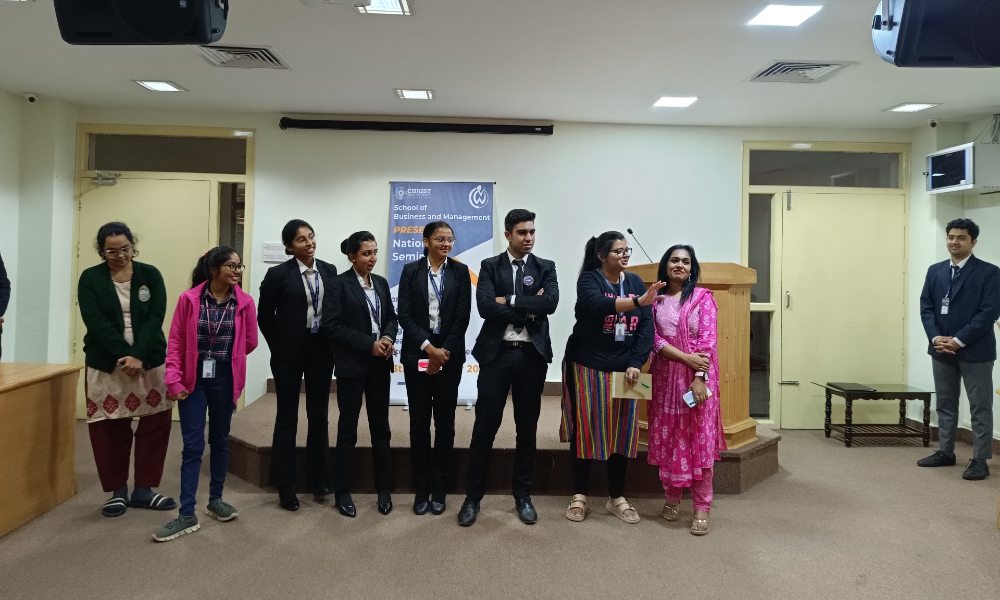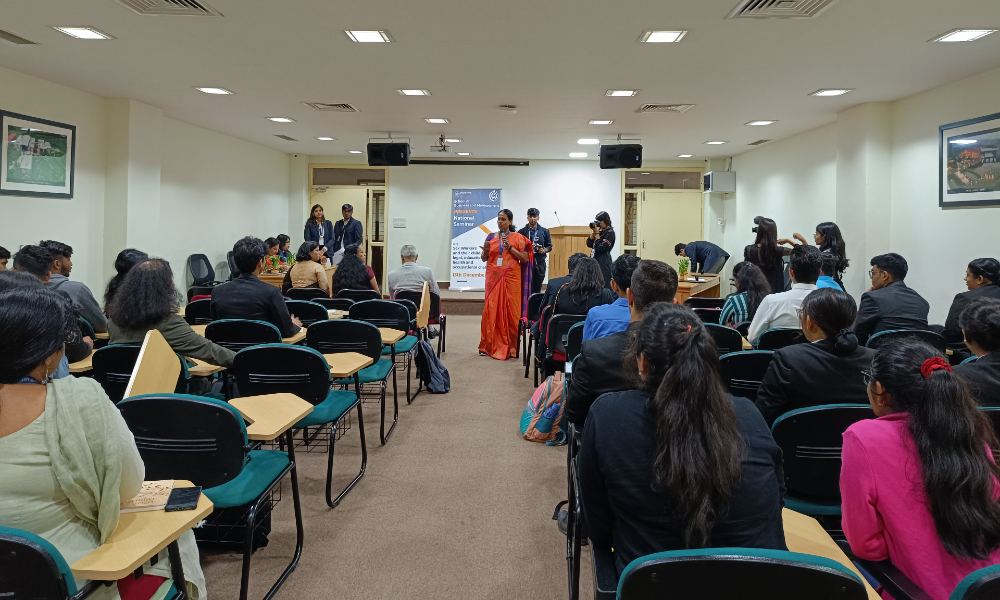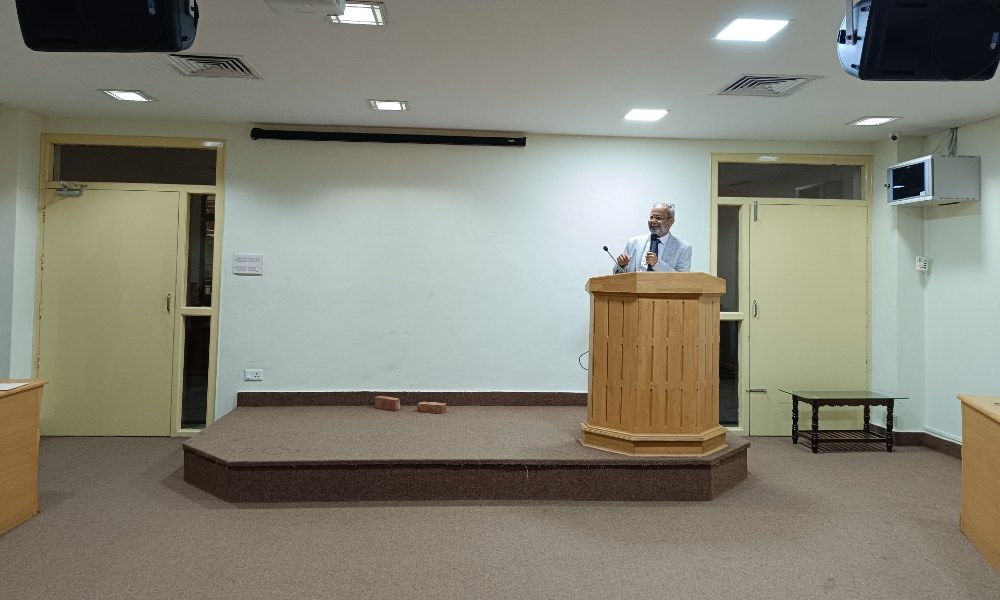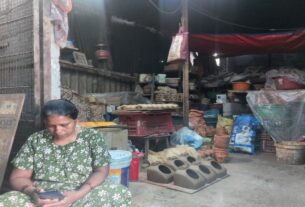Recognition of the needs of sex workers by the state and awareness among people about their plight is important for their upliftment, say experts.
While unionisation of sex workers will help them assert their rights, it still remains a legal challenge, said advocate B. T. Venkatesh, Founder, Reach Law. He was speaking at the national seminar on ‘Sex Workers and Their Children: Legal, Educational, Health and Occupational Challenges’ organised by Christ (deemed to be) University in association with the National Commission for Women.
“Unionisation of sex workers is important. It gives them a sense of security and helps address their issues,” said Atmaja, a research scholar at Christ University who has been working on the issue of violence against sex workers. While most organisations work for social and health issues faced by the sex workers, only a very few work for their legal rights, she said. “Sex workers’ unions such as Durbar Mahila Samanwaya Committee in West Bengal are great examples of the impact collectivisation can have on uplifting the lives of sex workers,” she added.
Fear of prosecution among sex workers is high, said Venkatesh. “Sex workers face discrimination and exploitation even from law enforcement agencies and courts,” he said. Beyond the law, decriminalisation of sex work must happen in the minds of the people to ensure the dignity of sex workers, he said. “It is important to remember that sex workers are guaranteed human rights and protection just like any other citizen,” he added.
Venkatesh said that migration of sex workers is high among South Asian countries. “Contrary to the common notion, a lot of sex workers willingly choose the profession for the economic benefits it offers to support their families as opposed to being trafficked or pushed into it,” he said. However, this does not change the fact that they continue to live in pathetic conditions and struggle with health issues and stigmatisation, he added. “Though these women provide for their families and educate their children, alienation from their families is another challenge that they face,” he said.
Sex work is the oldest profession and has been part of our culture and literature for years. However, it is only in recent years that it has been stigmatised, he said. “More than the legal, health, and educational hurdles faced by the sex workers, it is the stigma associated with the profession that poses challenges to them,” he said. Along with Aadhar cards, rations, and welfare schemes, every sex worker is entitled to dignity in the society. “Sex work is a profession and not a crime or a sin,” he added.

Renuka, Project Lead, Solidarity Foundation, an organisation working for the dignity of sex workers and promoting education among their children said that it has always been a challenging process due to the stigma attached to the profession and the lack of awareness among parents about the need to educate their children. “Leading a normal life is difficult for sex workers and their families. It is essential that they have the required support from the society, and that the laws meant to safeguard their interests not just remain on paper,” she added.
According to the 2022 report, “Tracking Impact of COVID-19 on Sex Workers in India” by Global Call to Action Against Poverty, there are approximately 8.12 lakh sex workers in India. A survey conducted across Karnataka, Kerala, and Jharkhand revealed that children were present in 78 percent of the households of sex workers.
In Karnataka, the average monthly income of a sex worker is roughly Rs. 1460, and more than 80 percent of them are either the primary or sole breadwinners for their families. However, only 15 percent of this income is spent on education. Additionally, 64 percent of sex workers in Karnataka reported unpaid loans, a situation that worsened during the pandemic.
While a majority of sex workers possess Aadhar Cards and Voter IDs, many of them lack caste and birth certificates, hindering their access to scholarships, reservations, and livelihood programmes. Moreover, 44 percent of sex workers reported receiving no social security benefits from the government.
Data also indicate that 18 percent of sex workers in Karnataka entered the profession before the age of 18, primarily due to a lack of alternative livelihood opportunities. While over 30 percent of sex workers experienced abuse and violence, they shared that the stigma associated with their profession, intensified by the pandemic, prevented them from seeking justice.

Dr. Valarmathi, Professor, School of Law, Christ University said that around 80 percent of the total women trafficked end up as sex workers. “These traffickers are usually known to the victims who exploit their economic conditions,” she said. Dr. Sapna S., Head, School of Law, Christ University also spoke about how stigma and marginalisation affect the mental health of individuals.
Fr. Dr. Thomas Mangara, Director of BBA Programme, Christ University, Dr. Radha Yadav, Assistant Professor, Department of Management, and Anil Joseph Pinto, Registrar, Christ University were the others present at the seminar. They said that the roles of the citizens extended beyond the seminar hall and that such discussions were a call to action to contribute to a society where everyone is treated equally.




